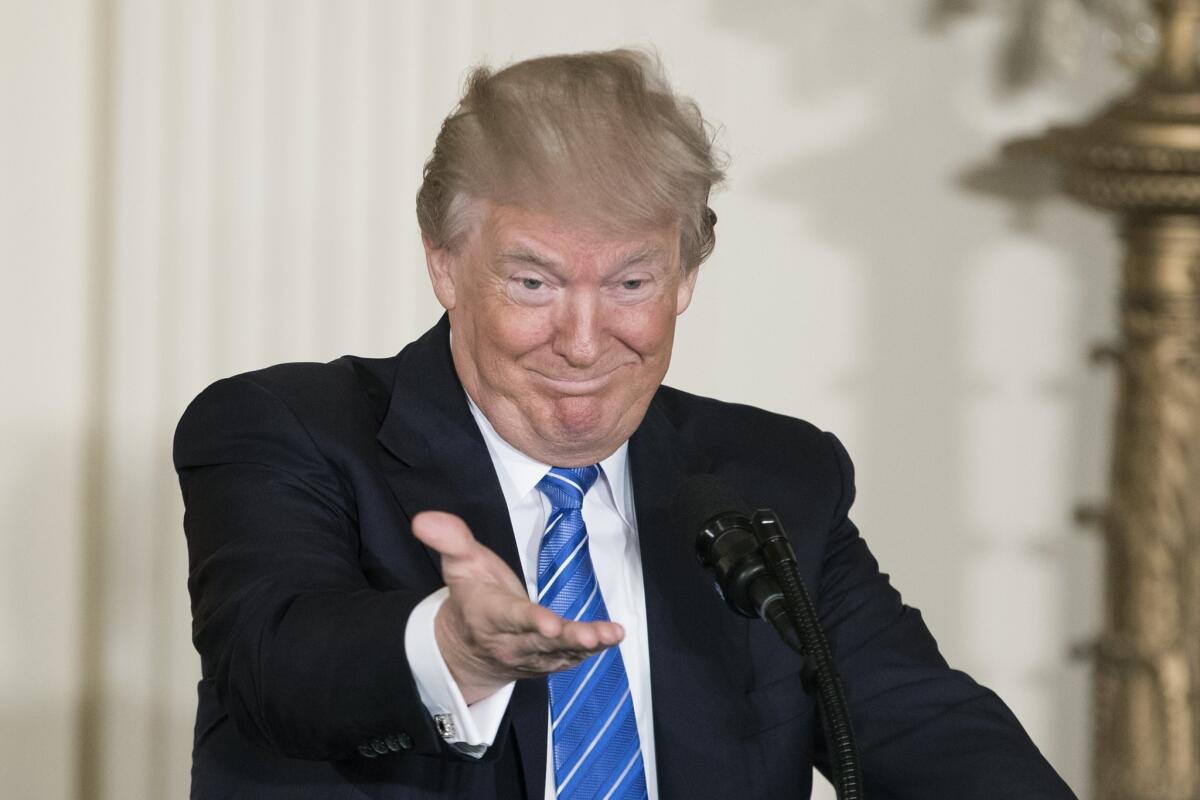Trump pledged to protect VA whistleblowers. He’s falling short, watchdog finds

WASHINGTON — A U.S. Department of Veterans Affairs office created by the Trump administration to boost accountability and strengthen whistleblower protections within the VA has failed to do so, a report by the agency’s inspector general concluded.
The 100-page report released Thursday determined that leadership shortcomings, misinterpretations of its own investigative authority and a lack of clear policy and procedures ultimately created an office that was “alienating to the very individuals it was meant to protect.”
During the 2016 presidential campaign, Trump repeatedly pledged to improve healthcare for veterans and the efficiency of the VA after a waiting-list scandal in 2014 raised concerns about veterans’ care.
Trump created the Office of Accountability and Whistleblower Protection with an executive order in April 2017, charging it with holding senior executives accountable for misconduct, preventing retaliation against whistleblowers and addressing poor performance among senior executives.
But as of May, the report found, the VA had removed just one senior manager, while more than 8,630 other employees had been let go since June 2017, when the VA Accountability and Whistleblower Protection Act became law.
The report also determined that, from June 2017 to May 2018, the office redirected more than 2,500 submissions from would-be whistleblowers — including some within its own investigative authority — to other sectors of the VA that weren’t equipped to take on such investigations and without having a system in place to track those submissions or protect whistleblowers’ identities.
“Without guidance, OAWP personnel did not take sufficient steps to protect complainants’ identities and prevent their concerns from being sent to the very facilities or network offices where the complainant worked or that were the subject of the allegations,” the report said.
A spokesperson for the VA said in a statement that the report largely focused on the office’s operations under managers who are no longer with the agency and that under new leadership, the office has already taken action on some of the issues highlighted by the agency’s inspector general.
The statement argued that a “key distinction the report misses” is that the act expanded disciplinary authorities that apply to all VA employees, and that it was not designed to “target” senior executives. The agency also raised concerns that the report did not address the office’s independent reforms beyond the footnotes section.
“Regardless, VA appreciates the IG’s review and is committed to consistent improvement, and under OAWP’s new leadership, the office will deliver just that,” the statement read.
The report also detailed how the office “failed to establish safeguards sufficient to protect whistleblowers from becoming the subject of retaliatory investigations.”
It described a case in which the office opened an investigation against a whistleblower at the request of a senior leader who had “social ties” to an official within the office and other instances in which office leadership “made comments and took actions that reflected a lack of respect for individuals they deemed ‘career’ whistleblowers.”
The report also cited shortfalls including failures to implement whistleblower protection training for all employees, submit congressionally mandated reports and revise supervisors’ performance plans.
The watchdog report ultimately made 22 recommendations, which included a call for an audit of the office for its compliance with the VA Accountability and Whistleblower Protection Act of 2017.
The report comes as President Trump has launched a series of public attacks on the intelligence community whistleblower whose complaint triggered an impeachment inquiry into his presidency. Trump has described the whistleblower in the investigation as a “partisan hack” and “close to a spy and has called for their identity to be revealed.
More to Read
Get the L.A. Times Politics newsletter
Deeply reported insights into legislation, politics and policy from Sacramento, Washington and beyond. In your inbox three times per week.
You may occasionally receive promotional content from the Los Angeles Times.











